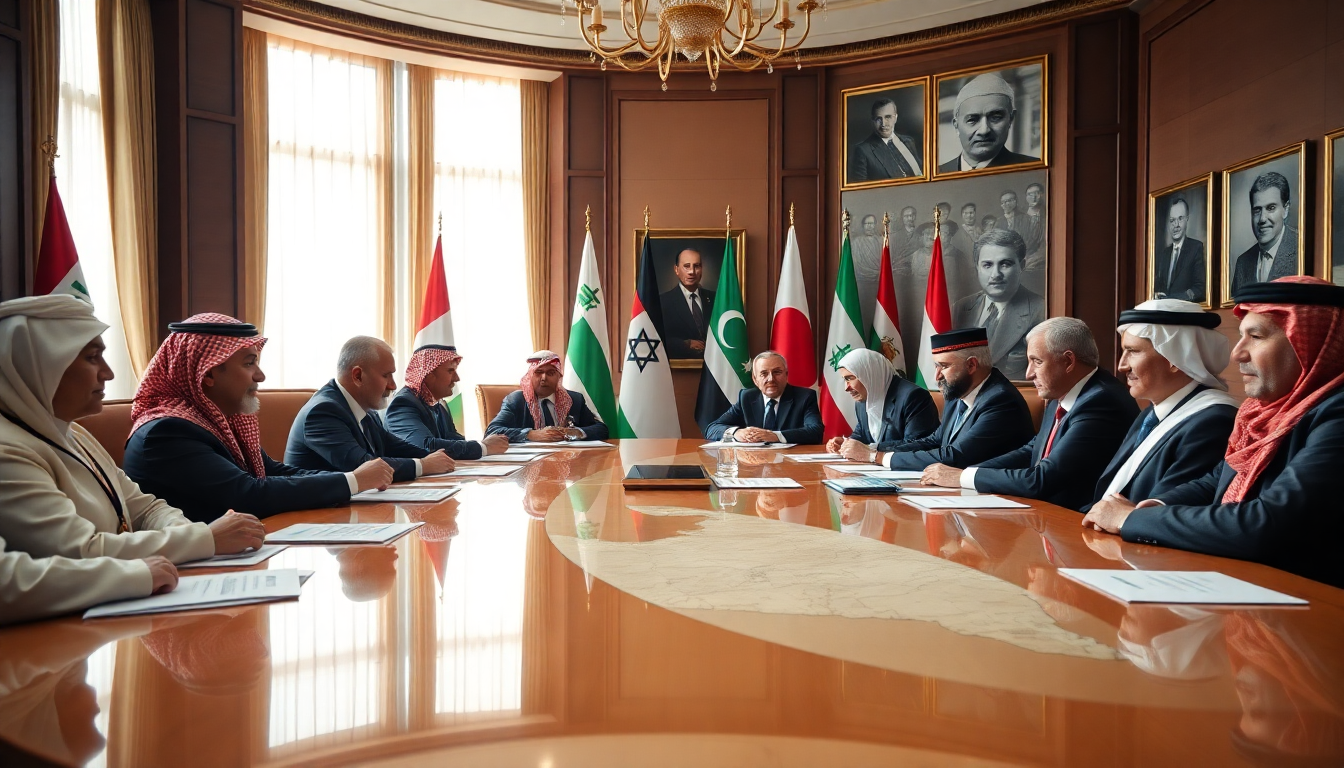Table of Contents
The recent announcement from several Arab nations condemning Hamas is more than just a statement; it’s a major turning point in the intricate geopolitical scene of the Middle East. This unprecedented move, highlighted in a seven-page statement from 17 countries—including significant players like Saudi Arabia, Egypt, and Qatar—reveals a growing consensus among Arab states.
They now recognize that Hamas’ continued power is a major roadblock to achieving peace and stability in Gaza. As the humanitarian crisis worsens, these nations are increasingly vocal about the urgent need for a fresh approach to the ongoing conflict.
Shifting Regional Dynamics
This declaration stands out not just for what it says, but for the unity it reflects among Arab nations. Historically, many of these countries have been somewhat ambivalent toward Hamas, often viewing the group as a necessary political force within Palestinian society.
However, the recent surge in violence and the escalating humanitarian crises in Gaza seem to have triggered a reevaluation of this perspective. The call for Hamas to step down and disarm is a clear signal that these nations now perceive Hamas as a barrier to peace rather than a partner.
What does this mean for the future? This shift is particularly noteworthy given the backdrop of efforts by countries like Saudi Arabia and Qatar to normalize relations with Israel. Their readiness to publicly denounce Hamas suggests a strategic pivot that could redefine alliances in the region.
There’s a palpable pressure to stabilize Gaza and alleviate the suffering of civilians, creating a unique opportunity for these nations to take a more proactive role in the peace process.
Challenges Ahead: The Role of the Palestinian Authority and the UN
While this development is promising, the proposals that followed reveal a complicated reality. The suggestion for Hamas to transfer its weapons to the Palestinian Authority (PA), with support from international organizations, raises serious questions about the feasibility of such measures. The PA has faced persistent criticism for its governance issues and its struggle to unite Palestinian factions. Its reputation as an autocratic regime that misuses international aid only complicates the situation further. Additionally, the idea of a UN-led stabilization mission in Gaza comes with its own set of challenges, given the history of UN peacekeeping efforts in the region, which have often fallen short of maintaining lasting peace.
Moreover, the stance taken by certain Western leaders—like the British Prime Minister’s warning to recognize a Palestinian state unless Israel takes decisive action—highlights a disconnect between the realities on the ground and the political narratives being pushed. By focusing on the PA as a potential peace partner, we risk overlooking the fact that Hamas remains deeply entrenched in Gaza, effectively blocking aid and undermining any hope for a ceasefire.
Looking Forward: The Path to Sustainable Peace
To achieve a lasting resolution to this conflict, it’s crucial for the international community to tackle the root cause of the issue—Hamas. The possibility of a two-state solution is still on the table, but it requires Palestinian leadership willing to engage in genuine dialogue without threatening Israel’s existence. As Arab nations begin to hold Hamas accountable, there’s a flicker of hope that a more collaborative regional approach could take shape, paving the way for sustainable peace.
In conclusion, the recent condemnation of Hamas by Arab nations is a hopeful sign that the dynamics in the Middle East may be shifting. However, for this momentum to translate into meaningful change, a concerted effort must be made to confront the fundamental challenges posed by Hamas while fostering genuine partnerships between the various Palestinian factions. The road ahead is filled with hurdles, but with focus and commitment, a pathway to peace may finally be within reach.





